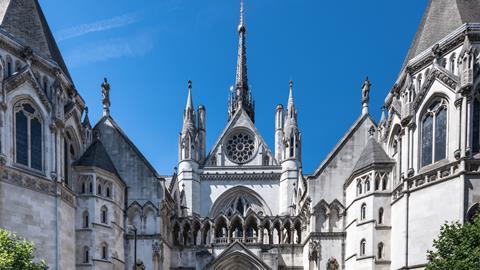The Court of Appeal has withdrawn the leniency offered to a litigant who waited 16 months to apply to have a judgment set aside.
But the court was more amenable to a party in the same case who missed an unless order by a day, upholding the decision to grant relief from sanctions.
The first defendant in Leadingway Consultants Ltd v Saab had been served personally in March 2022 and offered no acknowledgement of service or defence within the required month, resulting in the claimant securing default judgment for around £38m.
It was not until a claim was served on a second defendant the following year that the first defendant engaged with the process, finally issuing an application to set aside the default judgment in December 2023.
The first defendant told the High Court he had ‘vaguely’ recalled being served with the claim form but that he was ‘extremely busy with four ongoing litigation matters’ in Cyprus. He had not realised the importance of court documents and was prompted to act when the action began against the second defendant.
Mr Justice Knowles said there was an arguable defence to the claim and that proceedings would continue against the second defendant in any case. He accepted the application to set aside was not made promptly but used his discretion to allow the whole case to continue.
On appeal, the claimant pointed out there had been no good reason for the delay. Lord Justice Phillips agreed it was a ‘startling proposition’ that the claimant inadvertently revived the first defendant’s ability to set aside judgment by serving proceedings on the second defendant.
He added: ‘Whilst the judge’s decision to set aside judgment against the first defendant was one made in the exercise of his discretion, I do not consider that he identified any factor reasonably capable of outweighing the fact that, at the early stage of these proceedings, the first defendant had not challenged the judgment against him for 16 months without any good reason for that failure.’
The position for the second defendant was altogether different, the judge said. After several extensions for filing an application disputing the court’s jurisdiction, the court issued an unless order for service by 4.30pm on 20 December 2023.
The application notice was filed a day out of time, with the solicitors explaining this was due to an ‘innocent mistake by a member of the team in counting the days for compliance’. There were other factors in favour of relief: the judge made clear the court's unless order was not in the required form, an obligation specifically designed to lessen the risk of the type of error which occurred in this case.
Upholding the High Court's decision to allow the late application, Phillips said: ‘At the end of the day, the second defendant was one day late in filing his application due to the inadvertent mistake of his solicitors.’




























No comments yet